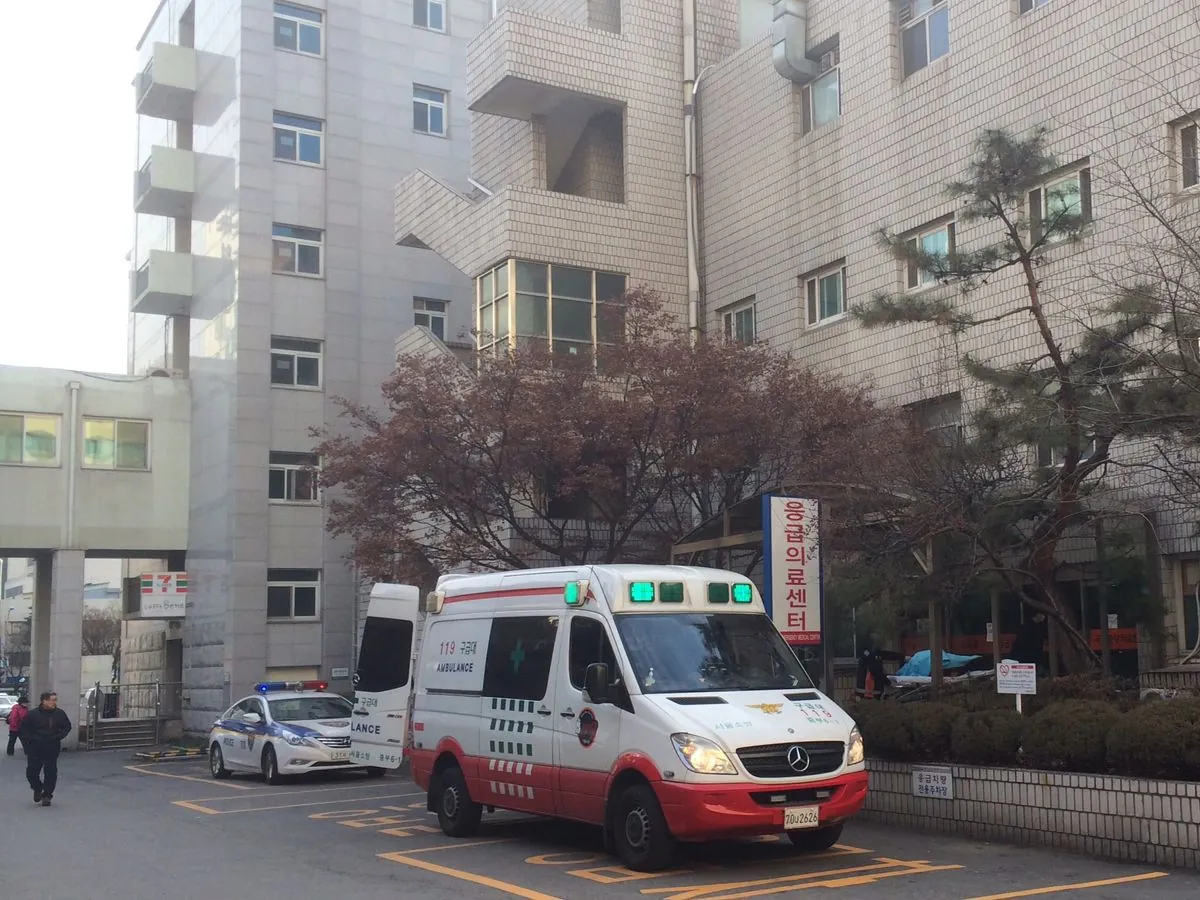South Korea's healthcare system, renowned for its efficiency and ranked among the world's best, is facing unprecedented challenges. The Korean Medical Association (KMA) has issued a stark warning about potential emergency room (ER) closures in September 2024, citing a combination of factors that could overwhelm the system.
The primary concerns stem from an ongoing strike by trainee doctors and an anticipated surge in COVID-19 cases. Chae Dong-young, a KMA spokesman, highlighted the risk of "serial shutdowns" in ERs, particularly during the Chuseok holiday when many essential medical staff will be on leave.
This situation has its roots in a dispute that began in February 2024 when thousands of trainee doctors, including interns and residents, initiated a strike. The walkout was in response to government plans to increase medical student numbers by 2,000 annually, aimed at addressing a projected severe shortage of doctors in the coming years.
The strike's impact has been significant, with hospitals struggling to maintain services. Many have had to turn away patients from ERs due to staff shortages, while existing doctors face increased workloads. The KMA reports that ER physicians at university hospitals are resigning due to overwork and fears of malpractice lawsuits exacerbated by fatigue.
However, the South Korean government disputes the KMA's assessment of the situation. The Health Ministry acknowledges that some hospital ERs have required support from military or community doctors but denies that widespread closures are imminent. They assert that over 95% of patients visiting ERs could be treated at clinics, suggesting a need for better resource allocation.
"There may be some hospital emergency rooms that have needed support from military or community doctors assigned by authorities but denied that ERs were headed for closure."
To address these challenges, the government has proposed a medical reform plan. This includes offering incentives for doctors to practice in essential disciplines and in regions outside major cities. Additionally, they are considering increasing the cost of ER services for non-acute conditions to reduce unnecessary visits.
South Korea's healthcare crisis is unfolding against the backdrop of its impressive medical infrastructure. The country boasts one of the highest doctor consultation rates in the OECD and a high number of hospital beds per capita. It has also been at the forefront of technological adoption in healthcare, with significant investments in telemedicine and digital health initiatives.
The current situation highlights the complex challenges facing South Korea's healthcare system. While the country has successfully managed previous health crises, such as the MERS outbreak in 2015, the combination of a rapidly aging population, increasing healthcare demands, and the ongoing dispute with trainee doctors presents a unique set of obstacles.
As September 2024 approaches, all eyes will be on South Korea's ability to navigate this healthcare storm, balancing the needs of patients, the concerns of medical professionals, and the long-term sustainability of its healthcare system.
